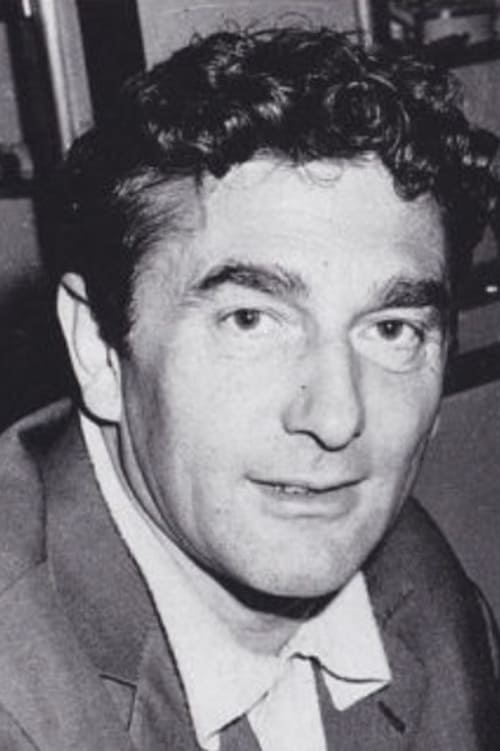
Marcel Camus
Birth : 1912-04-21, Chappes, Ardennes, France
Death : 1982-01-13
History
Marcel Camus (21 April 1912 – 13 January 1982) was a French film director. He is best known for Orfeu Negro (Black Orpheus), which won the Palme d'Or at the 1959 Cannes Film Festival and the 1960 Oscar for Best Foreign Language Film.
Camus was born in Chappes, Ardennes, France and died in Paris. He studied art and intended to become an art teacher. However, World War II interrupted his plans. He spent part of the war in a German prisoner-of-war camp.
Prior to directing films, Camus assisted filmmakers in France, including Jacques Feyder, Luis Buñuel, and Jacques Becker. He directed nearly a dozen films, including Orfeu Negro (also known as Black Orpheus), which won the Palme d'Or at the 1959 Cannes Film Festival and the 1960 Academy Award for Best Foreign Language Film.
In 1960, Camus made a second Brazlilian-themed film, Os bandeirantes. Twenty years after Orfeu Negro, Camus returned to Brazilian themes for what would prove to be his last film, Bahia (also known as Otalia da Bahia and Os pastores da noite), based on a novel by Brazilian novelist Jorge Amado. These films, however, failed to recapture the success of Orfeu Negro. In 1970, Camus had a moderate success with a World War II comedy, Le Mur de l'Atlantique (The Atlantic Wall), starring the well-known French comedian Bourvil. Camus ended his career working primarily in television.
Camus married one of the stars of Orfeu Negro, Marpessa Dawn.
Camus is buried in Père Lachaise Cemetery.
Source: Article "Marcel Camus" from Wikipedia in English, licensed under CC-BY-SA 3.0.

Director

Screenplay

Director

Director
1944. Léon Duchemin owns a restaurant with his sister. His clients are Germans, Résistance et black marketeers. Léon unwillingly joins the Résistance when a British pilot is shot down and hides in his attic and, through a series of mishaps, he accidentally steals the plans for Hitler's V1 missiles.

Director

Director
French youth drama.

Writer

Director

Writer
A beautiful dancer has two admirers -- one is a young worker whom she has only met by accident, and the other is an unscrupulous businessman. The worker had been training as a Buddhist monk and as his interest in the dancer and the businessman's pursuit of the woman develop, the dancer and the former monk end up at the archaeological site of Angkor.

Director
A beautiful dancer has two admirers -- one is a young worker whom she has only met by accident, and the other is an unscrupulous businessman. The worker had been training as a Buddhist monk and as his interest in the dancer and the businessman's pursuit of the woman develop, the dancer and the former monk end up at the archaeological site of Angkor.

Writer

Director
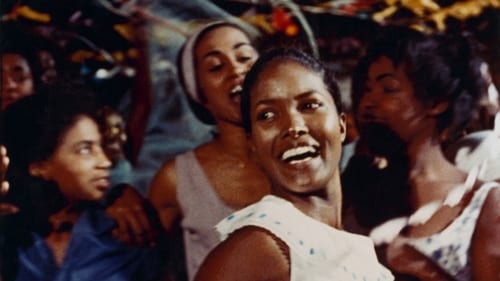
Dialogue
Young lovers Orfeu and Eurydice run through the favelas of Rio during Carnaval, on the lam from a hitman dressed like Death and Orfeu's vengeful fiancée Mira and passing between moments of fantasy and stark reality. This impressionistic retelling of the Greek legend of Orpheus and Eurydice introduced bossa nova to the world with its soundtrack by young Brazilian composers Luiz Bonfá and Antonio Carlos Jobim.

Adaptation
Young lovers Orfeu and Eurydice run through the favelas of Rio during Carnaval, on the lam from a hitman dressed like Death and Orfeu's vengeful fiancée Mira and passing between moments of fantasy and stark reality. This impressionistic retelling of the Greek legend of Orpheus and Eurydice introduced bossa nova to the world with its soundtrack by young Brazilian composers Luiz Bonfá and Antonio Carlos Jobim.

Ernesto
Young lovers Orfeu and Eurydice run through the favelas of Rio during Carnaval, on the lam from a hitman dressed like Death and Orfeu's vengeful fiancée Mira and passing between moments of fantasy and stark reality. This impressionistic retelling of the Greek legend of Orpheus and Eurydice introduced bossa nova to the world with its soundtrack by young Brazilian composers Luiz Bonfá and Antonio Carlos Jobim.

Director
Young lovers Orfeu and Eurydice run through the favelas of Rio during Carnaval, on the lam from a hitman dressed like Death and Orfeu's vengeful fiancée Mira and passing between moments of fantasy and stark reality. This impressionistic retelling of the Greek legend of Orpheus and Eurydice introduced bossa nova to the world with its soundtrack by young Brazilian composers Luiz Bonfá and Antonio Carlos Jobim.

Director
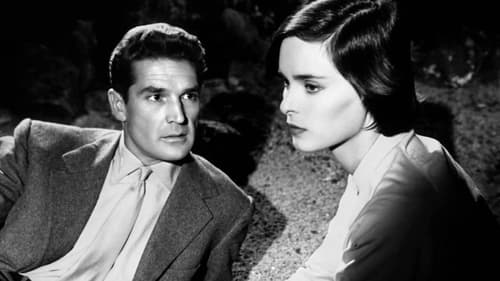
First Assistant Director
In a small town in southern France, on the seafront and not far from Italy, Dr. Valerio is working to heal the poor. His young wife, could no longer stand the place, encouraged him to go and settle in Nice but the doctor does not want to leave before having found a replacement. Valerio was particularly friendly with Sandro, an agricultural worker who maintains the trees belonging to Gorzone, wealthy industrialist and major employer in the city. Sandro, disturbed by the serious illness of his wife, is struggling to fulfill its functions. During an absence of his wife, Dr. Valerio meets Clara, a young Italian, and falls for her. The drama erupts when Gorzone dismisses Sandro ...

Assistant Director
Catherine Racan, a young journalist who always puts her career over her love life, is brought in by the police for questioning. They are looking for a doctor who illegally performs abortions and now they are interrogating all of his previous clients.
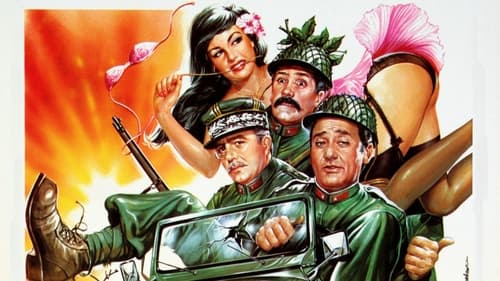
Assistant Director
The Cheerful Squadron is a 1954 Italian war-comedy film directed by Paolo Moffa and Interpreted by movie stars like Paolo Stoppa, Vittorio De Sica, Alberto Sordi and Silvana Pampanini. Based on the military environment novel The Allegro Squadron by Georges Courteline (1886), this film presents a series of sketches on military life in the late nineteenth century.

Screenplay
The Cheerful Squadron is a 1954 Italian war-comedy film directed by Paolo Moffa and Interpreted by movie stars like Paolo Stoppa, Vittorio De Sica, Alberto Sordi and Silvana Pampanini. Based on the military environment novel The Allegro Squadron by Georges Courteline (1886), this film presents a series of sketches on military life in the late nineteenth century.

Assistant Director
A terminally ill Mr. Bard, a casino bus driver forced to quit his job, miraculously wins a fortune playing roulette. Instantly becoming a millionaire, he wants to fulfill his life's dream: to become a father. This plan is opposed by his greedy relatives who would go any low to take this money away from him. They are being led by a small-time crook. Mr. Bard's natural shyness and good heart lead him to the journey of self-exploration and finding his true love.

Adaptation
A young, talented and ambitious journalist, Louis heads off to try his luck in Paris. He's spotted by Walter, editor-in-chief for a major daily newspaper, who takes to him and furthers his career. What he doesn't realise is that Louis is ready to betray anyone to achieve his ends...

Assistant Director
Rosette is young and charming but she is crippled so she cannot make the most of her life. Which upsets Jules Petitpas, a single inventor, her eccentric but kind-hearted neighbor. Jules pledges to help her by creating a potion that will cure her. Unfortunately he dies before being able to achieve his aim. But a promise is a promise, and the good man comes back to the land of the living as an ... ectoplasm! And he manages to involve a whole tribe of ghosts to assist him in the noble task of saving the young lady. All is well that ends well.
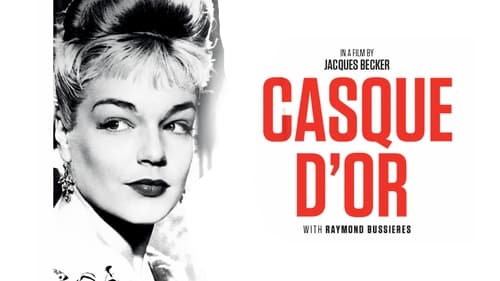
Assistant Director
Ex-convict Georges Manda returns to the free world determined to go straight and takes a steady job as a carpenter. Unable to completely shake his connections with the underground, he meets with a former prison mate, older gangster Félix Leca, who introduces him to his mistress, the sweet but guarded Marie "Casque d'Or". Marie and Georges fall into a passionate relationship, driving Félix to do everything in his power to ruin the couple.
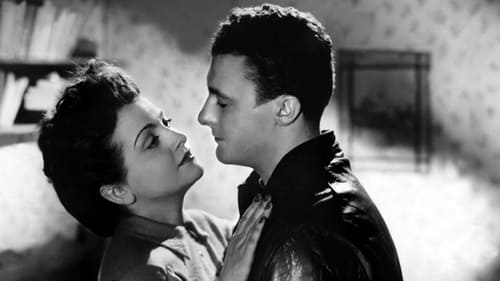
Assistant Director
She's working in a big store, he's a typographer and they lost their winning lottery ticket.








